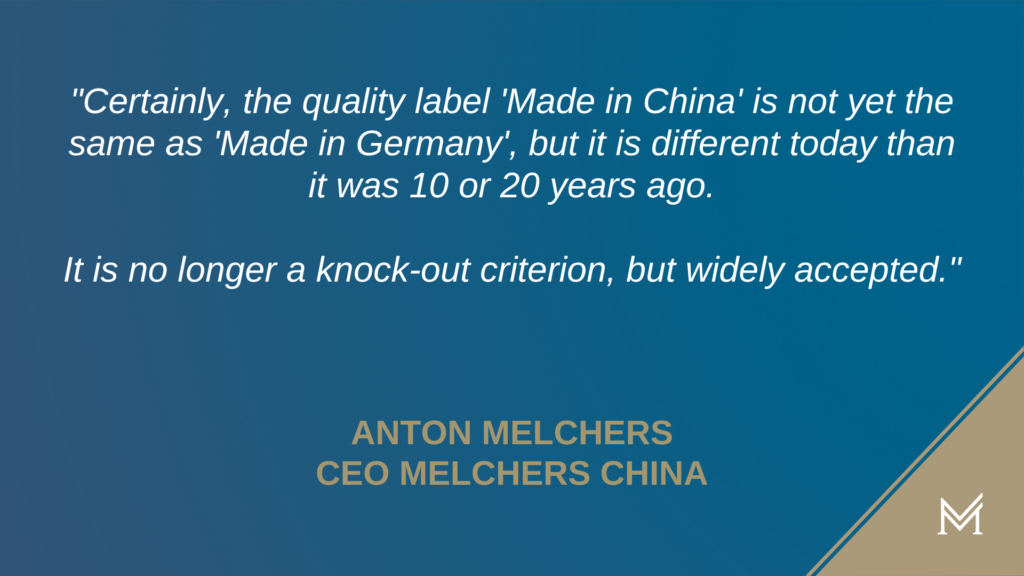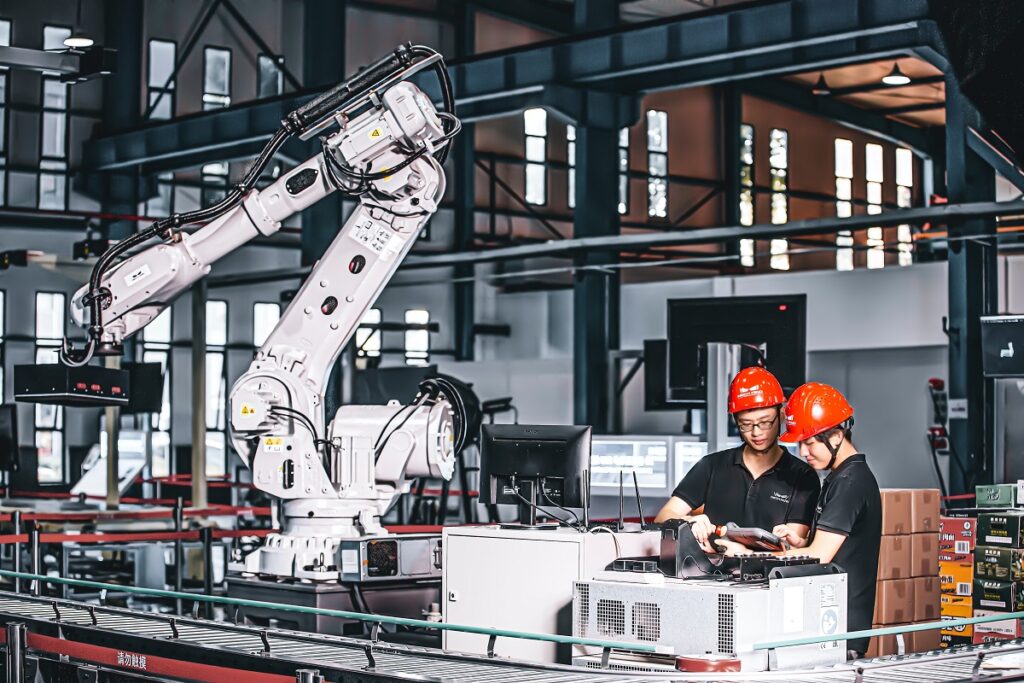MELCHERS CHINA CEO IN DIALOGUE WITH MADE IN CHINA PODCAST – PART II

Topic: How big is the competition Made in China now for Made in Germany? How can Germany maintain its standing in the future?
(Our CEO Anton Melchers has been interviewed for the Made in China Podcast to talk about his personal journey to China, the history of Melchers and business in and with China. This is part II of the series.)

Anton Melchers: This is now very fluid. What is ‘Made in China’ today is potentially designed in California or designed in Tübingen and ‘Made in China’. I think you must distinguish between ‘Designed in…’ and ‘Made in…’ and I think ‘Made in China’ is probably indistinguishable from ‘Made in other markets’ these days. Most iPhones are made in China, and I do not think we all really have a reason to find fault with the hardware. So at least in terms of workmanship, I cannot say that ‘Made in China’ is somehow worse.
What we know as ‘Made in Germany’ is machinery, equipment, or cars. I believe that the competition from China will have to be taken very seriously. Certainly, the quality label ‘Made in China’ is not yet the same as ‘Made in Germany’, but that is different today than it was 10 or 20 years ago. So, it is no longer a knock-out criterion, but widely accepted. I believe that ‘Made in China’ will certainly take over the mass market from European manufacturers in many areas. Whether it is machinery and equipment or even in the automotive sector. I am really not an expert on that, and for German and European companies that means staying ahead in research and development, which works quite well thanks to training and education in Germany. But the focus must clearly be on this. And, of course, we must also face international conditions.
I believe that it will be exceedingly difficult to work the world market from Germany, so you must be decentralized, not only in production but also in R&D, if possible, of course. If that is not possible, you must think about strategic cooperation to cope with this. Because what may be ‘Made in China’ today and is not yet important, will be ‘Made in China’ tomorrow and will be on the doorstep of the local manufacturer and appear as competition.
I think what justice to this might also do, with the global focus of German or European manufacturers, is of course to dedicate themselves to the topic of immigration, i.e., the topic of know-how, intellectual property, cultural assets from abroad, and to include this in the development of their products to become suitable for the global market in order not to be overrun by the increasingly strong Chinese suppliers.
For further reading of this podcast – Part I: In the very beginning, spices and porcelain were probably traded by Melchers. What are your core fields nowadays?


